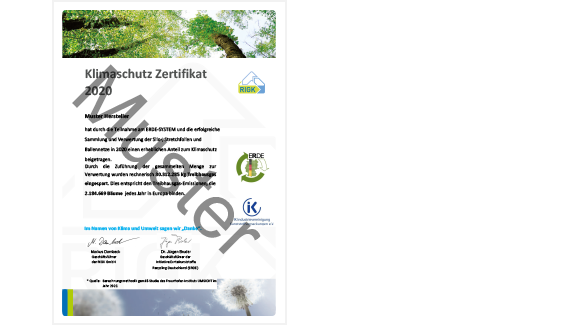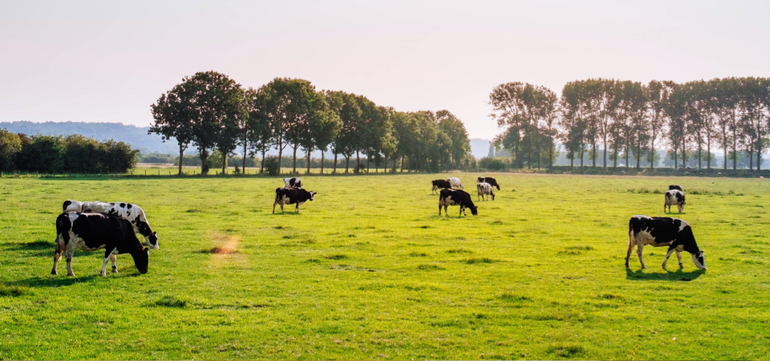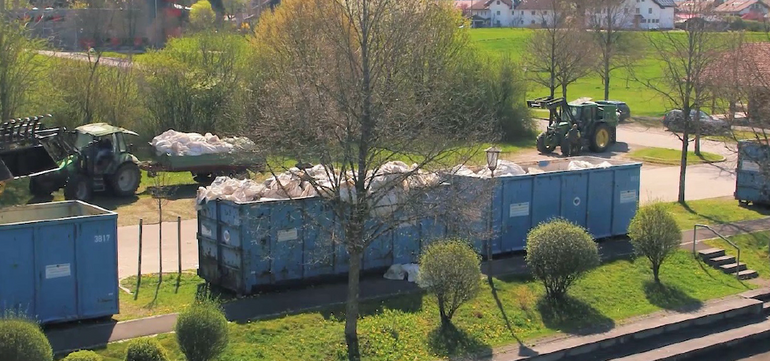... so that used agricultural plastics become new resources!
Stretch film, silage sheets, underlayer films, asparagus films, perforated films , round bale nets and baler twine – in agriculture, large quantities of plastic products are used year after year, ending up as waste. To ensure that these plastics do not pollute the environment, companies in various sectors have taken a joint initiative to protect the climate and the environment with ERDE - crop plastics recycling in Germany.
ERDE is a recovery and recycling system for crop plastics that actively contributes to sustainable agriculture and efforts to conserve resources.
Shared responsibility
Under the umbrella of the IK German Association for Plastics Packaging and Films, manufacturers of crop plastics are standing up for climate and environmental protection. Together with the disposal specialist RIGK, the group developed the ERDE concept with the aim of promoting the recovery and recycling of crop plastics. Through this concept, they voluntarily take active responsibility for the end of life treatment of their products.
ERDE actively engages all stakeholders in the crop plastics cycle:
- As members of ERDE, manufacturers and initial distributors of crop plastics that supply the German market finance the promotion of their collection.
- Contractors and farmers who use ERDE licenced products and drop off their used crop plastics, separated and free from residues, at ERDE collection points.
- Trade, machinery rings, farmers, contractors and disposal companies operate the ERDE collection points.
The system operator RIGK expands the network of collection points, assists in setting up collection points with monitoring staff, carries out the collection and proper documentation and offers the collection points ready-made solutions for communications.
As consumers, farmers also benefit from significantly lower costs when dropping off their crop plastics compared to alternative disposal services. In addition, you receive proof of proper recovery with a formal statement of achieved CO₂-savings.
You can find out who our members are on our ERDE members page ERDE Mitglieder.
Voluntary commitment
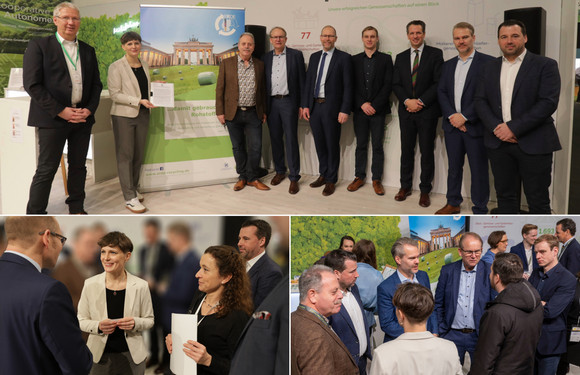
All those involved in the ERDE materials cycle benefit from the now high profile of the ERDE initiative in politics and the media.
Bettina Hoffmann, Parliamentary State Secretary at the BMUV, accepted the new voluntary commitment of the ERDE initiative in the context of the Green Week on 19 January 2024. The companies in the initiative have pledged to collect and recycle over 60 per cent of all asparagus film placed on the market in Germany by 2026 and over 75 per cent of all silage and stretch film by 2027. ERDE members have also committed to specific collection targets for other agricultural plastics such as nets, yarns and nonwovens. In addition, further crop plastics are to be included in the take-back and recycling system in future. In the coming years up to 2027, drip tapes, greenhouse film and protective nets will also be integrated into the cycle. ERDE is thus aiming for a holistic recycling solution for all crop plastics.
As a partner of politicians at federal and state level, ERDE is the only take-back and recycling system to offer a nationwide structured drop-off option as well as orderly collection and recycling.
Committed to success in protecting the environment and the climate
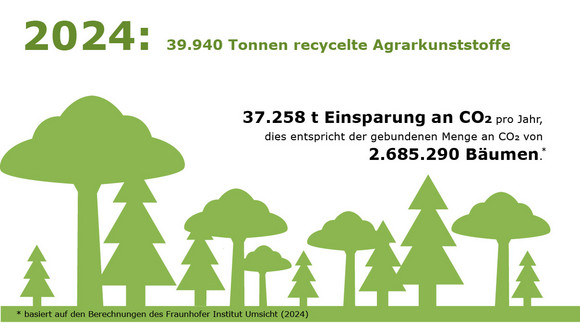
Collected crop plastics are whenever possible mechanically recycled using processes that conserve instead of incinerated for thermal recovery. By recycling the materials, important raw materials are fed back into the cycle and CO₂ is saved. – Used plastic products do not end up in the environment, preventing micro or macroplastics from polluting the soil and water.
In 2024, the voluntary scheme ERDE collected and mechanically recycled almost 39,940 tonnes of silage and stretch film.. This is more than 60% of all films sold on the German market in a year!
This success is a clear sign of the wide acceptance of the ERDE system among farmers, machinery rings and agricultural traders.
In 2024 the ERDE initiative was able to save the equivalent of 37,258 tonnes of CO₂. This is the equivalent to the CO₂ bound by more than 2,6 million trees.
Process flow
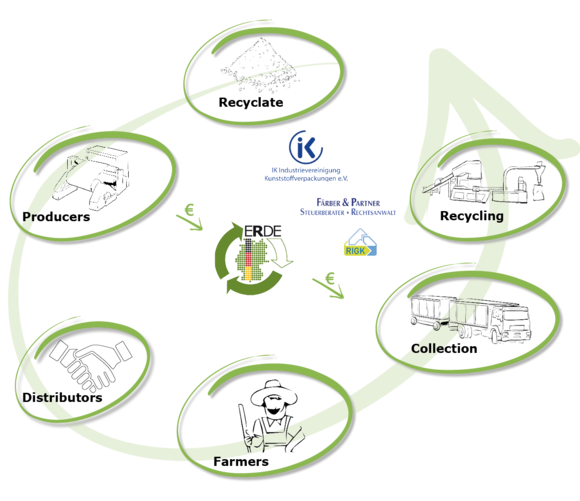
Recyclate:
Are distributed by the recycling companies on the free market
Producers:
Price per ton varies per fraction
Distributers
Farmers:
• Prepare product for delivery to collection points (cleaning & sorting)
• Bring plastics to an ERDE collection point or order containers.
Collection:
• Collection partners determine the prices and choose the disposer
• ERDE pays an incentive per collected and recycled ton
• This leads to attractive/marketable prices for the farmer
Recycling:
All films collected in ERDE are 100% recycled in Europe, otherwise collection partners do not receive ERDE incentive

